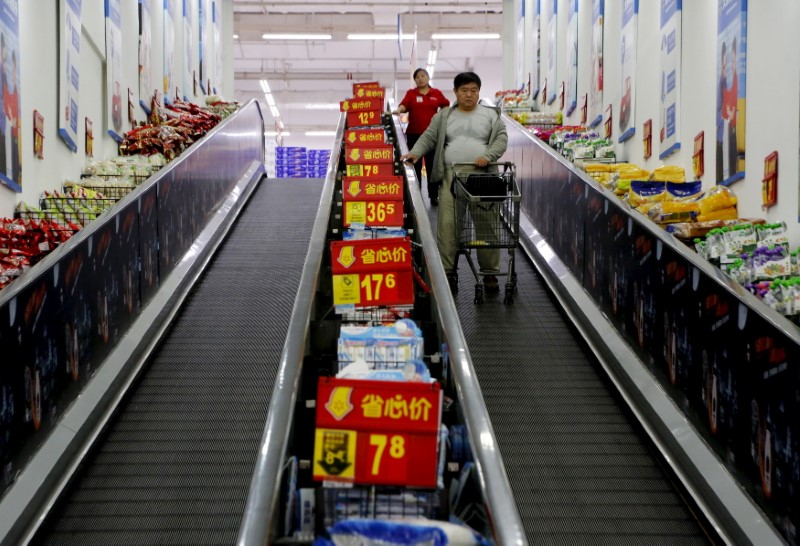(Bloomberg) -- The trade war just ratcheted up another notch and the outlook for Chinese manufacturing deteriorated further, signaling the caution that characterized a tumultuous August for global markets may have further to run.
The ground is laid for a volatile start to September, exacerbated by the U.S. Labor Day holiday on Monday crimping trading volume with Treasuries and equity markets shut. In the Asia Pacific region, all eyes will be on shares of Apple Inc (NASDAQ:AAPL). suppliers and clothing manufacturers to gauge the reception to this latest round of tariff hikes.
“This is the mother of all questions: Is Mr. Trump going to escalate or de-escalate over the next year?” Luciano Jannelli, head of investment strategy at Abu Dhabi Commercial Bank, told Bloomberg TV on Sunday. “It’s difficult to say.”
The U.S. implemented 15% tariffs on about $110 billion in apparel, footwear and other Chinese imports on Sunday. Face-to-face talks between American and Chinese trade negotiators scheduled for Washington this month were still on track, President Donald Trump told reporters on Friday.
According to Bloomberg Intelligence estimates, Chinese exports of shoes and clothing to the U.S. could drop by more than 3% year-on-year in the second half of this year as a result of the tariffs.
Further Complications
“The tensions will escalate and many official bank house views that had a U.S.-China trade deal over time as the base-case scenario might have to revise this as the clashes in Hong Kong further complicate any discussion between the Trump administration and the Chinese Communist Party,” said Rainer Michael Preiss, a portfolio strategist at Taurus Wealth Advisors Pte.
Data Saturday showed the manufacturing sector of the world’s second-largest economy remains under pressure. China’s purchasing managers’ index dropped to 49.5, marking the fourth consecutive month of contraction in factory output.
The latest tariffs that came into effect on Sunday were widely anticipated and may already be reflected in market prices.
“The market expected the tariffs” to kick in, said Kerry Goh, CEO and CIO of Kamet Capital Partners Pte., a Singapore-based multi-family office. “I don’t think there will be a big move” on Monday.
For Jingyi Pan, a strategist at IG Asia Pte., it remains prudent to play defensive.
“It does appear that the disagreements between the two sides will drag on with negotiations yet to lead to any way out of the current gridlock,” she said.
Here are a few areas to monitor in trading on Monday:
Apple (NASDAQ:AAPL) suppliers
The new duties will hit Apple (NASDAQ:AAPL) products that made up at least 10% of sales in the company’s 2018 fiscal year, such as the Apple Watch, AirPods and iMac computers, according to Bloomberg analysis. Shares of Foxconn Technology Group, the U.S. company’s main assembly partner, and Luxshare Precision Industry Co., which provides components for wearable devices like the Apple Watch, could be volatile in Monday trading, said Taurus Wealth’s Preiss.
A more than 7% surge for gold in August may have further to go after ending last month at about $1,520 an ounce. “It’s not just the tariffs but the Hong Kong unrest that could lead to renewed buying interest in gold,” said Preiss. The Singapore-based executive said gold could hit $2,000 over the next 12 months, bolstered by trade woes and further interest rate cuts by the Federal Reserve.
China stocks
Apparel and footwear manufacturers that derive revenues from Chinese exports to the U.S. are in the line of fire. Hong Kong-listed Yue Yuen Industrial Holdings Ltd., for one, makes about 13% of its shoes in China and is one of the largest shoemakers for Nike (NYSE:NKE) and Adidas (DE:ADSGN) globally, according to Bloomberg Intelligence.
